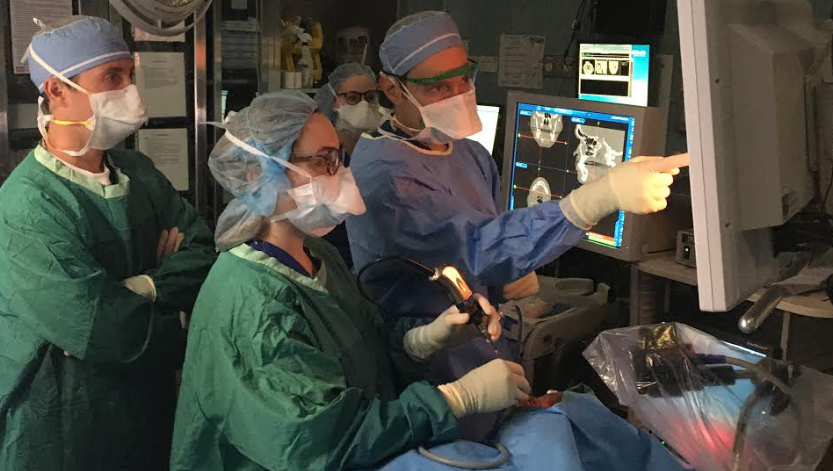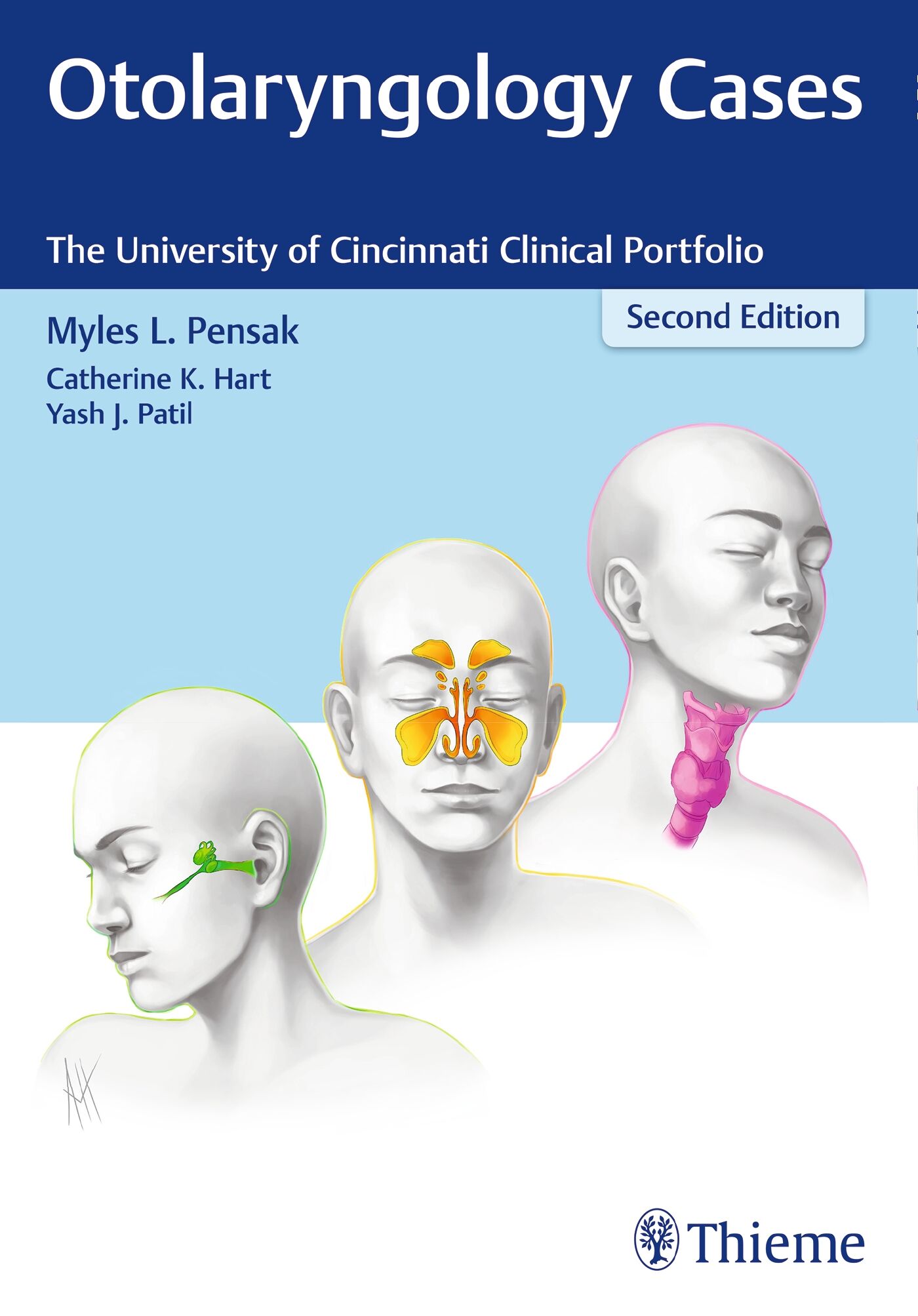Hearing Challenges? Here's When to Seek Help from a Hearing Clinic
Hearing Challenges? Here's When to Seek Help from a Hearing Clinic
Blog Article
Exploring the Area of Otolaryngology: What to Anticipate When You Seek Advice From an ENT
Otolaryngology, commonly referred to as ENT, incorporates the medical diagnosis and therapy of ear, nose, and throat conditions. For those experiencing associated concerns, seeking advice from an ENT specialist can supply clarity and relief. Comprehending what to expect throughout such consultations is necessary for reliable communication and treatment. This review will detail key facets of the ENT experience, including usual reasons for brows through and the processes associated with medical diagnosis and therapy.

Recognizing Otolaryngology: An Overview
Otolaryngology, typically referred to as ENT (Nose, throat, and ear) medicine, is a customized branch of medication that concentrates on the medical diagnosis and therapy of problems influencing these critical locations of the body. This field incorporates a wide variety of problems, consisting of those associated to hearing, balance, respiratory function, and speech. Otolaryngologists are trained to manage both medical and clinical treatments, using innovative techniques and innovations. Their experience expands past conventional conditions, resolving issues such as allergic reactions, sinus infections, and hearing loss. Furthermore, they play an essential role in the management of head and neck cancers cells, giving complete care tailored to specific patient requirements. In general, otolaryngology continues to be necessary for maintaining health and lifestyle in affected people.
Common Factors to See an ENT Expert
Several individuals seek the experience of an ENT professional for a range of reasons, reflecting the varied nature of conditions that influence the ear, nose, and throat. Typical issues consist of persistent sinusitis, which often results in relentless nasal congestion and facial discomfort. Allergic reactions and their connected signs and symptoms, such as itching and sneezing, likewise motivate visits to these experts (Otolaryngologist). Hearing loss, whether unexpected or steady, is one more significant reason for examination. Additionally, individuals might look for examination for throat disorders, including relentless hoarseness or swallowing problems. Sleep apnea, defined by disturbed breathing throughout sleep, is regularly dealt with by ENT professionals as well. Each of these problems highlights the importance of specialized care in taking care of complex ENT-related health and wellness problems
Getting ready for Your ENT Appointment
When preparing for an ENT consultation, it is important to gather appropriate details and think about any kind of certain problems. Clients should compile a comprehensive clinical history, consisting of previous ear, nose, or throat concerns, surgical treatments, and present medications. Documenting symptoms-- such as duration, severity, and frequency-- can give important insights for the ENT expert. Furthermore, people should prepare a listing of inquiries they want to ask, making certain that all concerns are dealt with throughout the check out. Bringing along any relevant medical records or examination results can better help the ENT in recognizing the individual's condition. Clients must validate their consultation information, consisting of date, time, and location, to decrease any type of last-minute confusion. Correct prep work can enhance the performance of the appointment and bring about far better outcomes.
What to Expect Throughout the Assessment
As the appointment starts, the patient can expect to take part in a comprehensive discussion with the ENT professional concerning their signs and symptoms and medical background. The professional will certainly ask about the period, regularity, and seriousness of signs and symptoms such as hearing loss, nasal blockage, or sore throat. Additionally, the person's previous clinical problems, medicines, and any appropriate family background will certainly be examined, aiding the professional in developing a complete understanding of the patient's health and wellness. The ENT may also ask regarding way of living variables, such as exposure to allergens or toxic irritants. This open dialogue develops a foundation for the consultation, guaranteeing that the client's concerns are attended to and setting the phase for any required assessments or recommendations for treatment.
Analysis Examinations and Treatments in Otolaryngology
A series of diagnostic examinations and procedures are vital in otolaryngology to accurately evaluate and identify problems affecting the ear, nose, and throat. Typical examinations include audiometry, which determines hearing function, and tympanometry, analyzing center ear stress. Nasal endoscopy allows visualization of the nasal passages and sinuses, while laryngoscopy takes a look at the throat and singing cables. Imaging techniques, such as CT scans and MRIs, provide detailed views of head and neck frameworks. Allergic reaction screening might also be performed to identify triggers for sinus or respiratory system concerns. These analysis devices enable find out ENT experts to create a comprehensive understanding of clients' problems, ensuring tailored and reliable monitoring plans. Proper medical diagnosis is crucial for successful therapy outcomes in otolaryngology.
Therapy Choices Used by ENT Specialists
ENT experts supply a selection of treatment options tailored to attend to details conditions impacting the ear, nose, and throat. These therapies vary from traditional techniques, such as medicine and lifestyle adjustments, to more invasive treatments. For example, allergic reactions may be managed with antihistamines or immunotherapy, while chronic sinus problems may need nasal corticosteroids or sinus surgical procedure. For hearing loss, ENT professionals usually suggest listening device or medical treatments like cochlear implants. In instances of throat conditions, choices can consist of speech treatment or procedures to get rid of blockages. In addition, they might provide assistance for taking care of rest apnea, including the usage of CPAP devices or surgical treatments. Generally, the objective is to improve individuals' quality of life through individualized care and reliable therapy approaches.
When to Seek Follow-Up Treatment With an ENT
When to seek follow-up care with an ENT visit this site right here professional is vital for managing ongoing signs and symptoms or issues connected to throat, ear, and nose conditions, acknowledging. Clients should think about arranging a follow-up visit if signs linger in spite of preliminary treatment, such as chronic ear discomfort, nasal congestion, or throat discomfort. Changes in hearing, balance concerns, or uncommon nasal discharge might also call for further evaluation. Additionally, if a person experiences side effects More Info from prescribed medicines or has actually gone through an operation, follow-up care is very important to check healing and address any type of problems. Timely examinations can ensure efficient management of conditions, prevent potential issues, and supply assurance regarding one's wellness. Looking for follow-up treatment advertises aggressive wellness management in otolaryngology.
Frequently Asked Questions

What Certifications Should I Search for in an ENT Professional?
When looking for an ENT expert, one ought to seek board qualification, pertinent experience, and solid patient evaluations. Furthermore, efficient communication skills and a thoughtful strategy can substantially enhance the general therapy experience.
Just how Do I Choose the Right ENT for My Demands?
Choosing the ideal ENT specialist includes evaluating their credentials, experience, and person testimonials (Voice). It is necessary to ponder their interaction style and method to therapy, guaranteeing they line up with the individual's specific health and wellness needs and preferences
Exist Any Dangers Connected With ENT Procedures?
The threats linked with ENT treatments might include infection, blood loss, anesthetic complications, and possible damages to bordering frameworks. Clients need to talk about these threats with their physician to recognize individual issues and assurance educated choices.
How Can I Handle Stress And Anxiety Before My ENT Visit?
To manage stress and anxiety prior to a visit, individuals can practice deep breathing exercises, imagine positive end results, prepare questions ahead of time, and look for assistance from close friends or household, fostering a sense of peace of mind and calmness.
What Should I Do if I Experience Adverse Effects From Treatment?
If side effects from therapy take place, the individual must quickly report them to their medical care supplier. Adjustments to treatment or additional interventions may be required to assure safety and effectiveness in managing their condition - ENT Clinic. As the appointment begins, the patient can anticipate to engage in a complete discussion with the ENT professional concerning their signs and clinical background. These analysis devices make it possible for ENT professionals to create an extensive understanding of clients' conditions, making certain customized and efficient management strategies. ENT specialists use a variety of therapy options tailored to address specific problems influencing the ear, nose, and throat. When seeking an ENT specialist, one must look for board accreditation, appropriate experience, and strong person evaluations. Picking the right ENT professional entails examining their certifications, experience, and individual reviews
Report this page